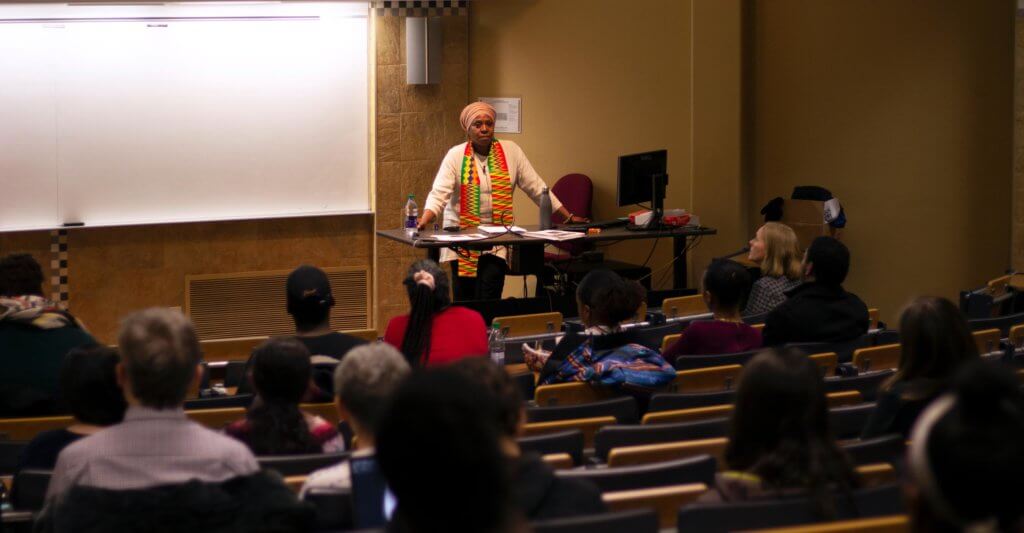Dr. Afua Cooper comes to Mount Allison for Black History Month

Dr. Afua Cooper was the ideal speaker to finish off an eventful Black History Month at Mount Allison. Serving as the seventh poet laureate for the Halifax Regional Municipality, Cooper also teaches in the department of sociology and social anthropology at Dalhousie University. Her PhD in Black Canadian studies and the African diaspora made her the perfect candidate to speak at Mount Allison’s Black History Month celebrations. According to Cooper’s website, her specialties include “African Canadian culture, gender, slavery, abolition and freedom, Black orature, education and Black agency and political consciousness.”
Cooper emphasized the importance of the way we teach Black history in school. In particular, she focused on the history of Black Loyalists and how this area is taught as a part of a racial justice education. She explained that the Black Loyalists were a group of African people who fought on the side of the British in the American Revolutionary War. The British had promised that at the end of the war these people would have their freedom be transferred to a British colony with resources and tools. These promises were not kept and the Loyalists were forced to flee Canada in search of freedom.
Cooper began her talk by reciting one of her poems, 15 Ships to Sierra Leone. She then took the audience on a journey through the history of Black Loyalists fleeing Canada on ships in search of more freedom back on the African continent. “My question is: Why is Loyalist history knowledge part of New Brunswick and Nova Scotian history but isn’t a part of the curriculum?” said Cooper. Furthermore, she challenged the audience to consider what is meant by racial justice as a whole and asked us to consider how we would define the term.
“In the same way we talk about the expulsion of Acadians in Canada, I would like to see the same spotlight shone on the history of the Black Loyalists,” said Cooper. This talk underscored how the many important aspects of Canadian history and Black history are overlooked in the current education system and that we have the power to change that.
“It’s 2020 and I feel like we’re late! Let the documents speak, let the facts speak for themselves!” Cooper said in her conclusion, noting that there is enough research and documentation out there about this history to make it worth highlighting in an educational context, and that it is up to us as learners to recognize its importance.
In her introduction to the afternoon, Kim Meade, vice-president of student life, noted that recognition and celebration of Black history should be an ongoing process, not just something that we practice in February. “This was an excellent event and we are committed to further programming being offered by Ivan Okello, our Black student advisor and diversity educator,” said Meade.





